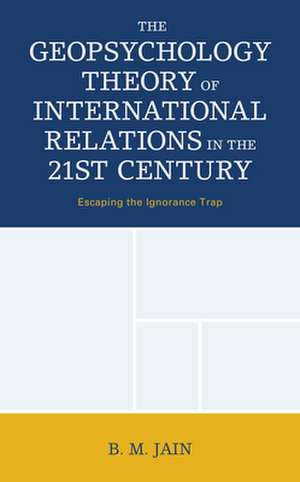Geopsychology and International Relations in the 21st Century
Autor B. M. Jainen Limba Engleză Hardback – 14 feb 2021
Preț: 686.27 lei
Preț vechi: 891.26 lei
-23% Nou
Puncte Express: 1029
Preț estimativ în valută:
131.34€ • 136.61$ • 108.42£
131.34€ • 136.61$ • 108.42£
Carte tipărită la comandă
Livrare economică 14-28 aprilie
Preluare comenzi: 021 569.72.76
Specificații
ISBN-13: 9781498573597
ISBN-10: 1498573592
Pagini: 278
Dimensiuni: 152 x 229 x 23 mm
Greutate: 0.54 kg
Editura: Rowman & Littlefield
ISBN-10: 1498573592
Pagini: 278
Dimensiuni: 152 x 229 x 23 mm
Greutate: 0.54 kg
Editura: Rowman & Littlefield
Notă biografică
Descriere
This book explains how geopsychology is different from mainstream international relations theories, arguing that peace and stability in the troubled parts of the world warrants understanding the psychological dispositions of non-state actors and authoritarian regimes.
